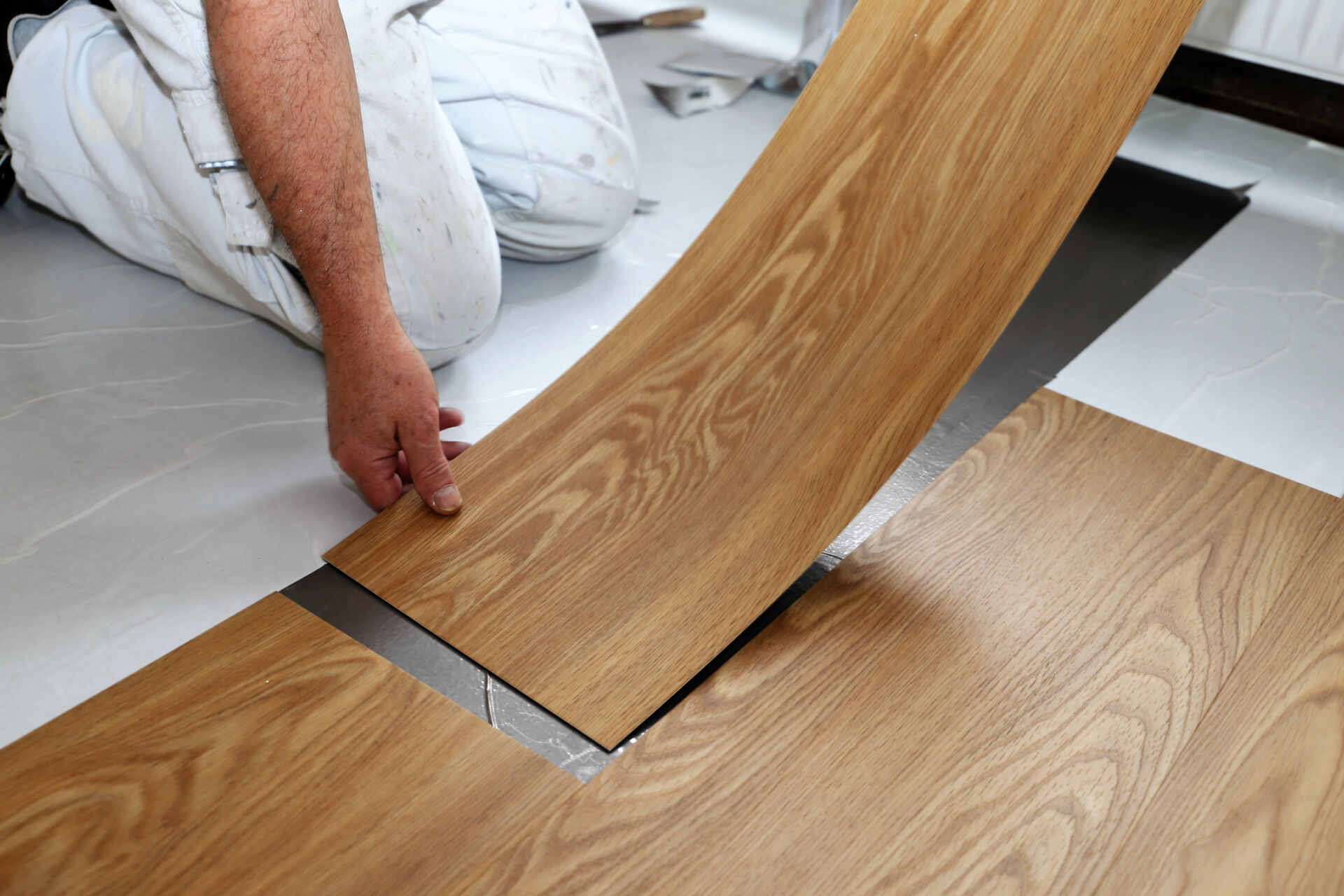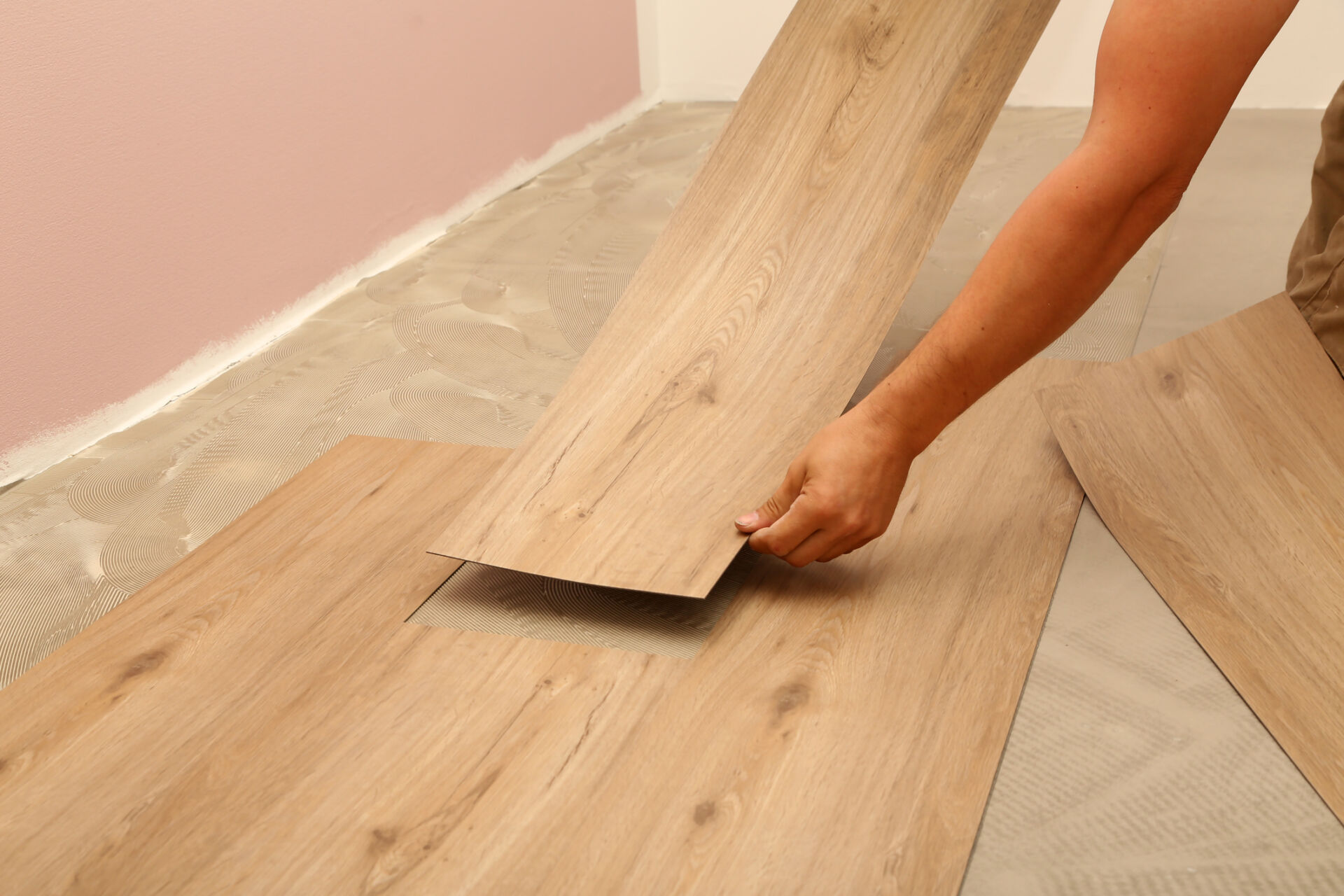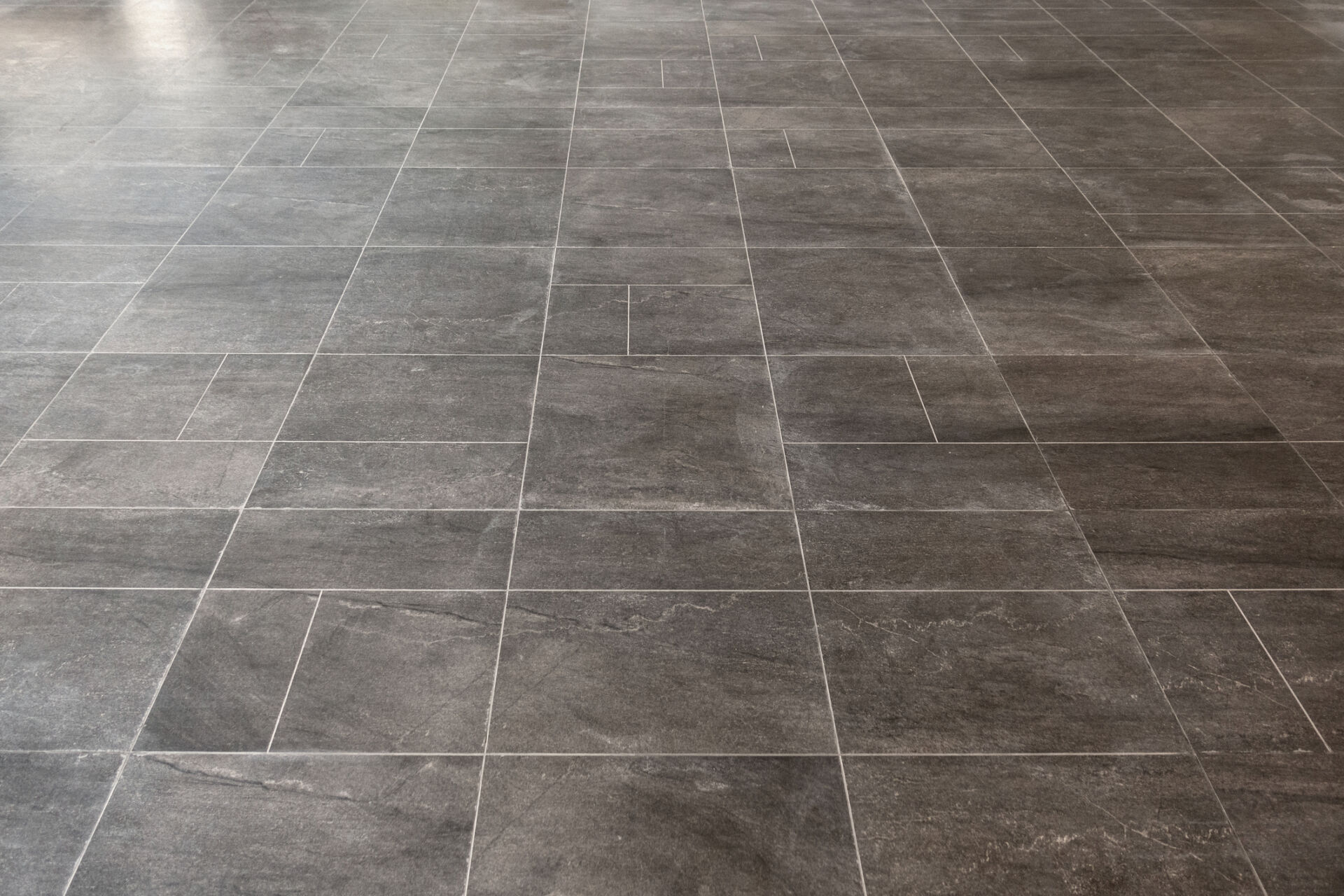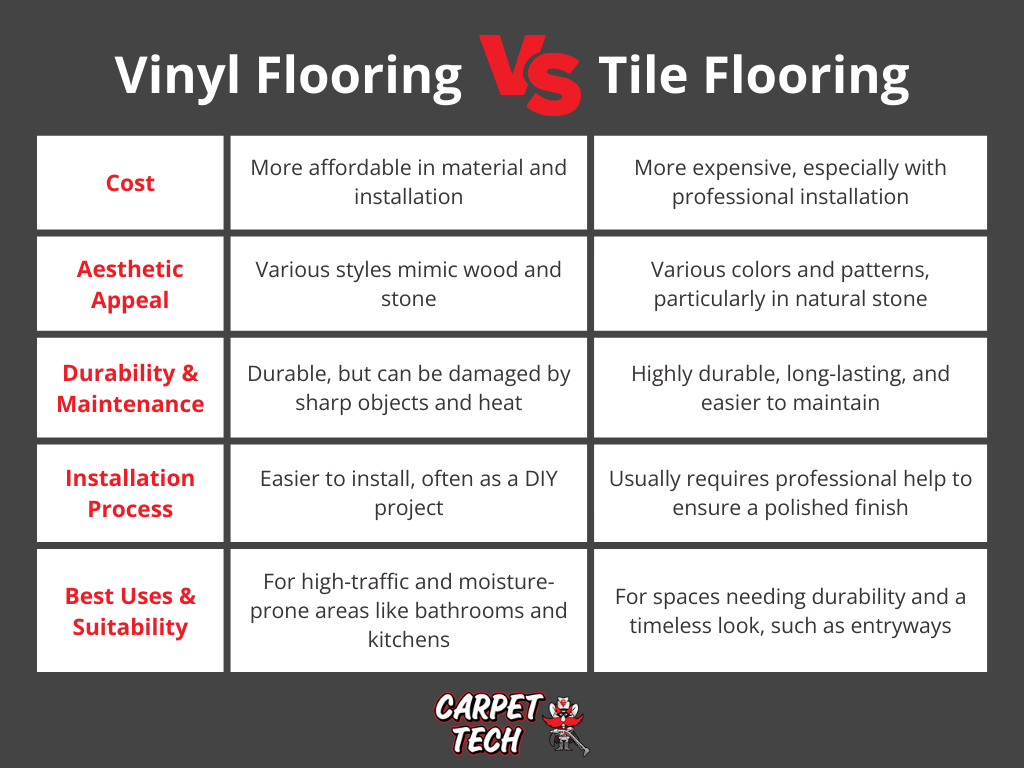
When it comes to choosing the perfect flooring for your home, two popular options come to mind: vinyl flooring and tile. Each has its own set of benefits and drawbacks, making the decision dependent on your specific needs and preferences. Vinyl flooring is known for its affordability, ease of installation, and wide range of design options, mimicking the look of hardwood and stone. It is also water-resistant and durable, making it a great choice for high-traffic areas and moisture-prone spaces like kitchens and bathrooms. On the other hand, tile flooring, including ceramic and porcelain options, offers superior durability, a timeless appeal, and excellent water resistance. Tile is often seen as a premium choice that can increase the resale value of your home. Throughout this blog, we will explore these differences in greater detail, helping you decide which flooring option is the best fit for your home.
Understanding Vinyl Flooring

Types of Vinyl Flooring
Vinyl flooring comes in various forms, each offering unique benefits. Here are the primary types of vinyl flooring available:
- Sheet Vinyl: This is a continuous roll of flooring that can cover large areas with minimal seams, making it ideal for spaces prone to moisture, like bathrooms and kitchens. It’s easy to install and provides a smooth, seamless look.
- Luxury Vinyl Tile (LVT): LVT mimics the appearance of natural stone or ceramic tile. It is designed to offer the look of high-end materials with added durability and ease of maintenance.
- Luxury Vinyl Plank (LVP): LVP is designed to resemble hardwood flooring, providing the aesthetic appeal of wood with the resilience and water resistance of vinyl. It’s available in various styles and finishes to suit different design preferences.
Advantages of Vinyl Flooring
Vinyl flooring is a popular choice for several reasons:
- Durability: Vinyl flooring is highly durable and can withstand heavy foot traffic, making it suitable for busy households and commercial spaces. It’s resistant to scratches, dents, and stains, ensuring a long-lasting finish.
- Water Resistance: Vinyl flooring is impervious to water, making it an excellent choice for moisture-prone areas such as bathrooms, kitchens, and laundry rooms. This characteristic helps prevent water damage and mold growth.
- Cost-Effectiveness: Compared to other flooring options like hardwood and tile, vinyl flooring is more affordable. It provides a high-end look without the associated costs, making it a budget-friendly option.
- Variety of Styles: Vinyl flooring is available in a wide range of styles, colors, and patterns, allowing homeowners to achieve their desired look. Whether you prefer the appearance of wood, stone, or tile, there is a vinyl option to suit your needs.
- Ease of Installation: Vinyl flooring is relatively easy to install, often requiring minimal tools and expertise. Many types of vinyl flooring feature click-and-lock systems or adhesive backings, simplifying the installation process.
Disadvantages of Vinyl Flooring
Despite its benefits, vinyl flooring has some drawbacks to consider:
- Susceptibility to Sharp Objects: Vinyl flooring can be damaged by sharp objects, which may puncture or scratch the surface. It’s important to avoid dragging heavy furniture or using sharp tools directly on the floor.
- Sensitivity to High Temperatures: Exposure to high temperatures can cause vinyl flooring to warp or discolor. It’s crucial to keep vinyl floors away from direct sunlight and heat sources to maintain their appearance.
- Environmental Impact: Vinyl flooring is made from synthetic materials, including polyvinyl chloride (PVC), which can have environmental implications. Additionally, vinyl flooring is not biodegradable, and disposing of it can contribute to landfill waste.
- Vinyl flooring offers a versatile, durable, and cost-effective solution for various spaces in your home. Its wide range of styles and ease of maintenance make it a popular choice for many homeowners. However, it’s essential to consider its susceptibility to sharp objects, sensitivity to high temperatures, and environmental impact when making your decision.
Understanding Tile Flooring

Types of Tile Flooring
Tile flooring is available in various materials, each offering distinct benefits and characteristics:
- Ceramic Tile: Made from clay that is baked at high temperatures, ceramic tile is durable, water-resistant, and available in a vast array of colors, patterns, and finishes. It’s a popular choice for both floors and walls.
- Porcelain Tile: Porcelain tile is a type of ceramic tile that is fired at even higher temperatures, making it denser, harder, and more water-resistant. It’s ideal for high-traffic areas and outdoor use.
- Natural Stone Tile: Options like marble, granite, slate, and travertine offer a luxurious, timeless appeal. Each stone has unique veining and color variations, adding a natural, elegant touch to any space.
Advantages of Tile Flooring
Tile flooring offers numerous benefits that make it a desirable option for many homeowners:
- Durability: Tile flooring is incredibly durable and can last for decades with proper care. It’s resistant to scratches, stains, and heavy foot traffic, making it suitable for high-traffic areas.
- Water Resistance: Tile is highly water-resistant, especially porcelain and ceramic tiles, making it an excellent choice for bathrooms, kitchens, and laundry rooms. It prevents water damage and is easy to clean.
- Timeless Appeal: Tile flooring has a classic and elegant look that can enhance the aesthetic appeal of any room. Natural stone tiles, in particular, add a touch of luxury and sophistication.
- High Resale Value: Homes with tile flooring often have a higher resale value due to the material’s desirability and durability. The tile’s timeless appeal and long lifespan make it a valuable investment.
- Variety of Styles: Tile comes in a wide range of colors, sizes, shapes, and finishes, allowing for creative design options. Whether you prefer a modern, rustic, or traditional look, there is a tile style to suit your taste.
Disadvantages of Tile Flooring
While tile flooring has many advantages, it also has some drawbacks to consider:
- Higher Cost: Tile flooring, especially natural stone and high-quality porcelain, can be more expensive than other flooring options. The cost of materials and professional installation can add up.
- Grout Maintenance: Grout lines can attract dirt, stains, and mold, requiring regular cleaning and maintenance to keep them looking fresh. Sealing the grout can help reduce maintenance needs.
- Cold and Hard Surface: Tile can be cold and hard underfoot, which might be uncomfortable in colder climates or for prolonged standing. Using area rugs or installing underfloor heating can mitigate this issue.
- Professional Installation Needed: Installing tile often requires professional help due to the need for precise measurements, cutting, and setting. This can increase the overall cost and complexity of the project.
- Slipperiness: Some types of tile, especially those with a glossy finish, can be slippery when wet. Choosing textured or slip-resistant tiles can help improve safety.
- Tile flooring offers durability, water resistance, and a timeless appeal, making it a popular choice for many homeowners. Its wide variety of styles and high resale value further enhance its desirability. However, it’s important to consider the higher cost, grout maintenance, and the need for professional installation when deciding if tile is the right flooring option for your home.
Comparison of Vinyl Flooring and Tile

Cost Comparison
Vinyl flooring is typically more affordable both in material and installation. Tile can be more expensive, especially when considering professional installation.
Aesthetic Appeal
Vinyl offers a variety of styles, mimicking wood and stone. Tile provides a timeless look with a wide range of colors and patterns, particularly in natural stone options.
Durability and Maintenance
Tile is highly durable and long-lasting, ideal for high-traffic areas. Vinyl is also durable but can be damaged by sharp objects and heat. Vinyl is easier to maintain, while tile requires grout cleaning.
Installation Process
Vinyl flooring is easier to install, often a DIY project. Tile installation usually needs professional help, which can increase costs but ensures a polished finish.
Best Uses and Suitability
Vinyl is great for high-traffic and moisture-prone areas like bathrooms and kitchens. Tile suits spaces needing durability and a timeless look, such as entryways and bathrooms.
Why Choose Carpet Tech for Your Tile and Grout Cleaning Needs
Carpet Tech is your trusted partner for maintaining clean and beautiful tile and grout or vinyl flooring. Our team of certified technicians uses advanced equipment to effectively remove dirt, stains, and bacteria, restoring the original shine and color of your tile. We prioritize exceptional customer service, ensuring a seamless experience from the initial free quote to the final inspection. Our cleaning process not only enhances the appearance of your tile but also contributes to a healthier home environment by eliminating allergens and bacteria.
Choosing Carpet Tech means opting for a reliable and professional service that understands the unique cleaning needs of different tile types, including ceramic, porcelain, natural stone, and vinyl. We are committed to delivering top-notch results that exceed your expectations, ensuring your hard surfaces remain pristine and hygienic.
Contact Carpet Tech today for a free quote and experience the difference of professional hard surface cleaning. Enjoy the peace of mind that comes with a cleaner, healthier home, and the renewed beauty of your tile flooring.
